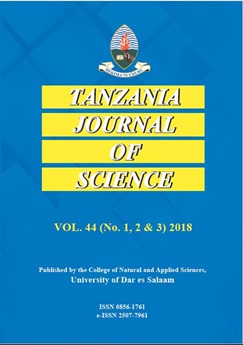Physicochemical and Sensory Evaluation of Mixed Juices from Banana, Pineapple and Passion Fruits during Storage
Abstract
Juices from fresh fruits offer various health benefits, including strengthening the immune system and preventing diseases. Mixed fruit juices tend to have good nutritional contents and organoleptic properties like colour, flavour, taste, and overall appeal of different fruits. This work investigated the physicochemical and sensory attributes of fruit juice of low viscosity banana juice blended with pineapple and passion juices. The prepared juices were pasteurised at 92 °C for 15 s, bottled in air-tight glass bottles, and subsequently stored in two different conditions: an ambient temperature of approximately 28 ± 2 °C and a fridge at 4 ºC for one month. Ascorbic acid content, total soluble solids, acidity, pH, and sensory evaluation were measured during the storage period. The results revealed that ascorbic acid and pH decrease significantly (p < 0.05) as the acidity increases. The changes ranged between 16 and 37% for ascorbic acid, 0.8 and 1.8% for pH, and from 12 to 27% for acidity were observed. The total soluble solids were found to increase until ten days of storage. The control samples showed no changes in all the physicochemical properties analysed during storage. The juice sample that consisted of 80% banana juice and 20% passion juice emerged as the utmost imperative sample as it scored the highest hedonic scale on all sensory attributes. The results imply that low viscosity banana juice can be used as a major component for the preparation of commercial mixed juices.
Keywords: Banana Juice; Chemical Analysis; Sensory Evaluation; Mixed Juice


